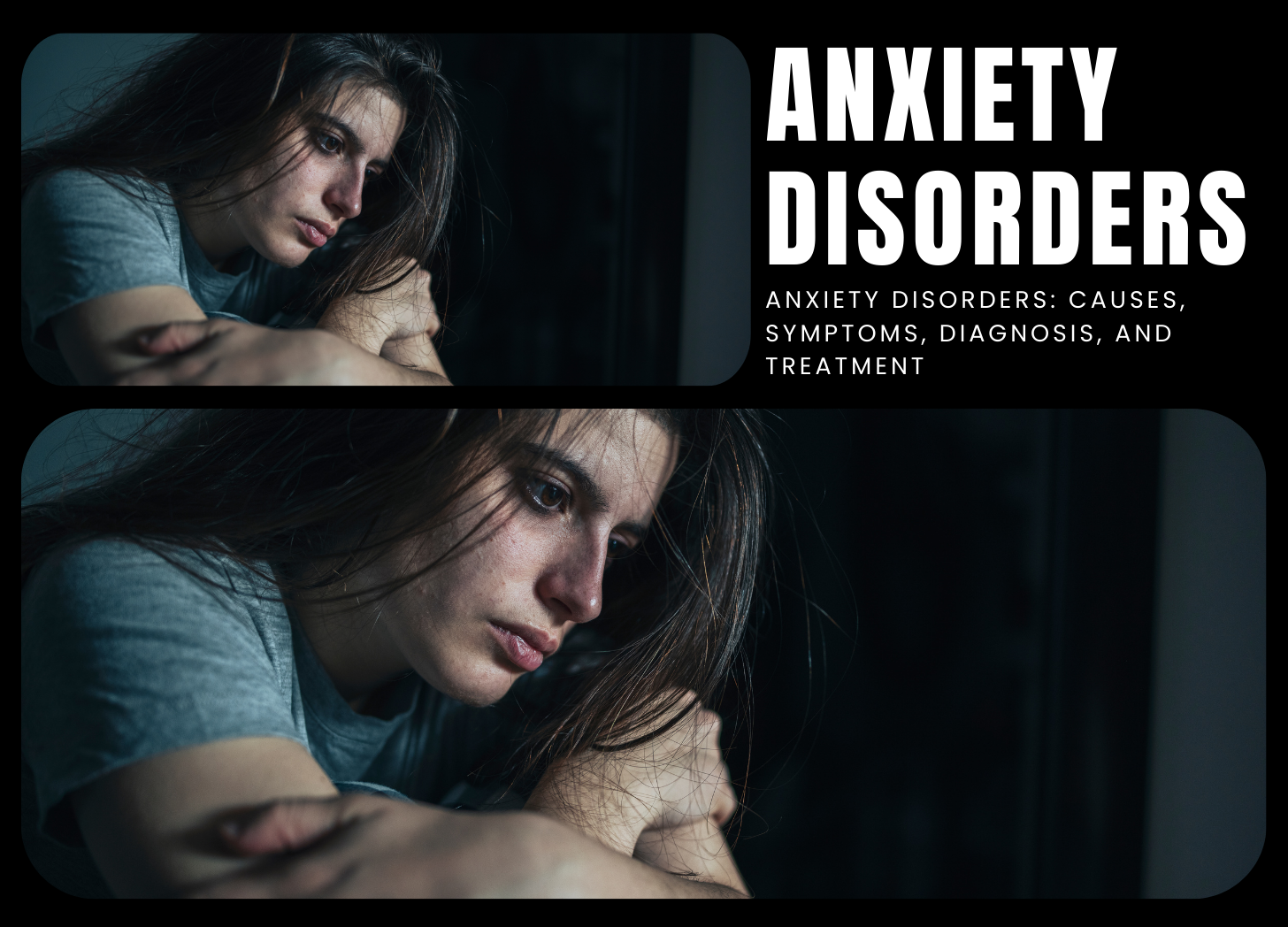Contact Us
Contact Us

Anxiety is a common human emotion characterized by feelings of worry, uneasiness, or fear about future events or uncertain outcomes. While occasional anxiety is a normal reaction to stress and can be useful in certain situations, such as motivating individuals to prepare for challenges, persistent or severe anxiety that interferes with daily life may indicate an anxiety disorder. Anxiety disorders are a group of mental health conditions characterized by excessive or irrational anxiety and fear, which can be debilitating and affect various aspects of life.
Anxiety disorders can arise from multiple factors, including genetic, environmental, biochemical, and psychological influences. Contributing factors include:
Symptoms of anxiety disorders can vary depending on the type of disorder and the individual. Common symptoms include:
Anxiety disorders can also cause panic attacks, which are brief episodes of intense fear or discomfort accompanied by physical symptoms such as a racing heart, chest pain, trembling, sweating, and shortness of breath.
Anxiety disorders are typically diagnosed through a comprehensive evaluation by a healthcare provider or mental health professional. This evaluation includes:
Screening tools, such as the Generalized Anxiety Disorder 7-item (GAD-7) scale or the Hamilton Anxiety Rating Scale (HAM-A), can help assess the severity of anxiety symptoms.
Treatment for anxiety disorders often involves a combination of psychotherapy (counseling) and medication tailored to the individual’s needs and preferences. Common treatment approaches include:
Anxiety disorders are common mental health conditions characterized by excessive worry, fear, and uneasiness, which can impact daily functioning and quality of life. With proper diagnosis and treatment, including psychotherapy, medication, and lifestyle changes, individuals with anxiety disorders can learn to manage their symptoms and lead fulfilling lives.
Post a Comment